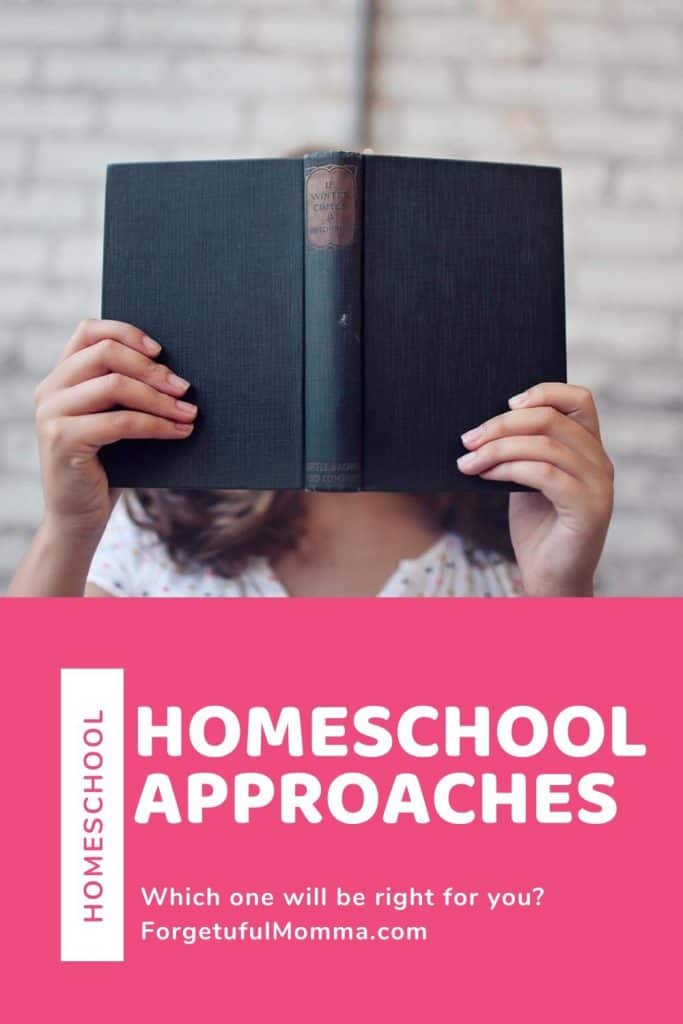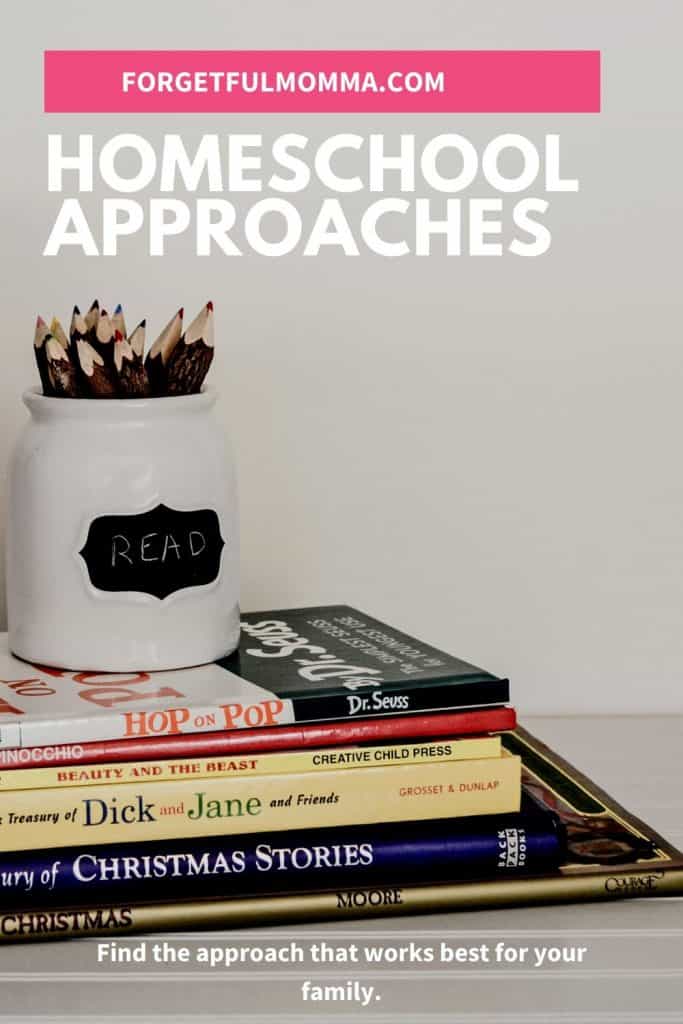There are a number of different types of homeschooling approaches. If you’re not a homeschooler or are new to it, it can be very confusing. When I started looking at homeschooling halfway through Austin’s Kindergarten year, I was still searching for answers months later with a cloud of confusion following me.

Homeschooling Approaches
*This post contains affiliate links, see my disclosure policy for more information.*
And I was just looking to see what type of learning and teaching style would best fit us before I started looking for the actual curriculum or materials that we were going to be using.
What did we end up figuring out? That we are eclectic homeschoolers. We learn based on the seasons, kids’ interest, their desire to sit and do bookwork occasionally.
Here are seven homeschooling approaches to get you started as you start your homeschooling journey, or maybe to help you clarify what they are.
Eclectic
Eclectic or relaxed homeschooling is the method used most often by homeschoolers. Basically, eclectic homeschoolers use a little of this and a little of that, using workbooks for math, reading, and spelling, and taking an unschooling approach for the other subjects.
Unschooling
Unschooling is also known as interest-driven, child-led, natural, organic, eclectic, or self-directed learning. The term “unschooling” has come to be associated with the type of homeschooling that doesn’t use a fixed curriculum.
This does not mean there is no learning. It is very interest-based. As the homeschool parent, you might leave books on different topics for them to look at/read. Maybe you buy the materials for them to make something without forcing them to do it.
You are just providing them with the materials to learn, based on what you would like to see them learn and/or by what they are interested in. Cooking and baking are great for reading and math in particular, as well as science.
Charlotte Mason
Charlotte Mason is based on Charlotte’s firm belief that a child is a person and we must educate that whole person, not just his mind. Charlotte Mason’s education is three-pronged: in her words, “Education is an Atmosphere, a Discipline, a Life.”
Unit Studies
Unit studies are approaching a theme topic from several angles, encouraging activity and love of learning. Units work best when the main topic is studied in all areas of education.

Box Curriculum
Boxed curriculum is just as it sounds, it is the structured approach of a traditional school-in-a-box curriculum. They include teacher’s guides which provide lists of required materials for student lessons, activities, experiments, and more.
Distance Education (School at Home)
Distance Education you enroll in a school and they send you all required resources to teach your child, the books and materials, often you will then send the completed work back for “marking”, and record keeping. This usually isn’t considered actual homeschooling by some, but I’m not here to judge.
There are a number of different ways to do distance school now, we have lived in areas where it was an option, free of charge, but we have also lived in others where you have to pay for each course for higher grades.
Classical
Classical homeschooling is an approach that depends on a three-part process of training the mind. The early years of school are spent in absorbing facts, systematically laying the foundations for advanced study. In the middle grades, students learn to think through arguments. In the high school years, they learn to express themselves. You can learn more here.
You just may realize that your homeschool includes a number of different methods of learning based on how your children learn. Next year I’ll have a kindergartner and she seems to love bookwork, right now that is. We’ll see how long that lasts… and if she continues to love it and learn that way, then GREAT.
Waldorf
Waldorf education, also known as Steiner education, is based on the educational philosophy of Rudolf Steiner, the founder of anthroposophy. Its pedagogy emphasizes the role of imagination in learning, striving to integrate holistically the intellectual, practical, and artistic development of pupils.
Montessori
Montessori is an individualized approach to education for children from toddler through high school that helps each child reach full potential in all areas of life. It is a student-centered approach that encourages creativity and curiosity and leads children to ask questions, explore, investigate and think for themselves as they acquire skills.
More on Homeschool Budgets
Budgeting to Homeschool on One Income
